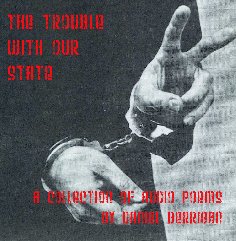 Sorry it’s taken so long to come up with part 2 of my response. Many forces have conspired against me to ensure that I didn’t finish, among them the horrible tragedy at Virginia Tech.
Sorry it’s taken so long to come up with part 2 of my response. Many forces have conspired against me to ensure that I didn’t finish, among them the horrible tragedy at Virginia Tech.
To pick up on point I made in part 1, it takes putting ourselves in the picture (in much the same way that as Christians we must remind ourselves that we are complicit in Jesus’ suffering and death) in order for the violence in the Abu Ghraib photos to strike us as worth our regard (which, for those of who have suggested that I either naively or willfully snubbed postmodernity in my book, is exactly the problem I’m trying to warn against, considering we live in an image-based culture—call it postmodern, if you like—wherein the tendency is for images to serve only as references to other images, not to any actual event).
But to suggest, as Mike Ciul does, that I am on a quest for shame illustrates, to me, the truly troubling (postmodern?) predicament we find ourselves in. This is where I actually think using the term Postmodern is useful, as a pejorative, an ignominious label. It now seems fitting to evoke the set of larger social/cultural/economic/political circumstances that have brought us to this moment, because it surely takes a combination of powerful systemic forces ordering our lives and perceptions to bring us to the point where we distrust our conscience.
Continue reading “Response: part 2 of 3”
 Sorry it’s taken so long to come up with part 2 of my response. Many forces have conspired against me to ensure that I didn’t finish, among them the horrible tragedy at Virginia Tech.
Sorry it’s taken so long to come up with part 2 of my response. Many forces have conspired against me to ensure that I didn’t finish, among them the horrible tragedy at Virginia Tech. 
